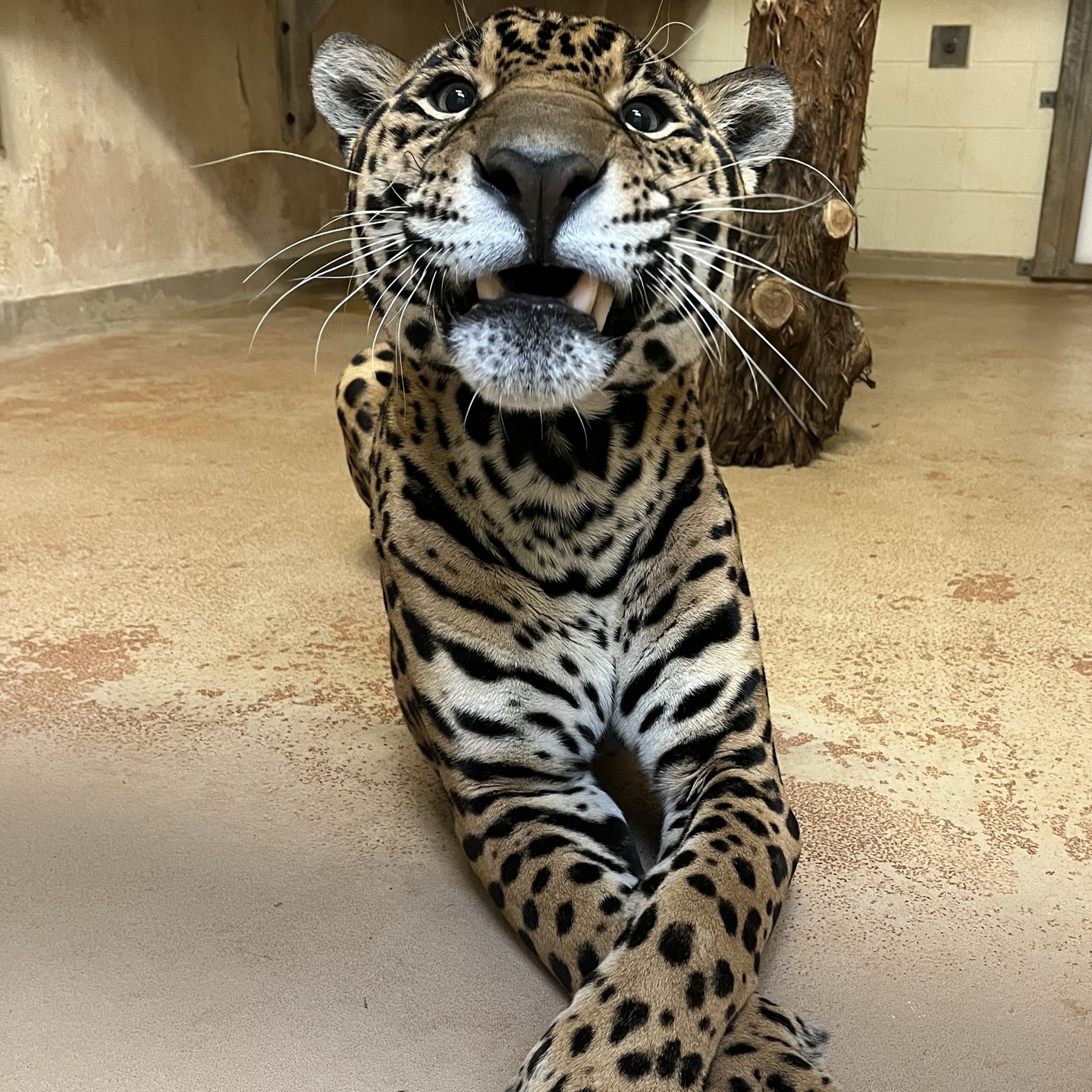- The life and habits of Rico, the 11-year-old male jaguar
- The role jaguars play in biodiversity and ecosystem balance
- Conservation efforts and their importance for jaguar populations
- The significance of zoos in wildlife education and preservation
- The personal connection and care provided by zoo staff to animals like Rico
Rico, our male jaguar, is celebrating his 11th birthday today, marking more than a decade as a cherished member of our animal family. As we revel in his milestone, it’s crucial to explore the rich, vibrant life of jaguars and their indispensable role in tropical ecosystems.
Jaguars, the largest cats in the Americas, are known for their powerful build and striking spotted coat. Their habitats range from the dense rainforests of the Amazon to the dry scrublands of Mexico. Highly adaptive, they thrive wherever water resources are plentiful as they are skilled swimmers, often hunting in and around water bodies. Jaguars primarily hunt capybaras, deer, and even caimans, showcasing their dominance as apex predators.
Rico, like other jaguars, exhibits remarkable agility and strength. His daily activities are a blend of rest and energetic play. His keen senses and stealth make him a captivating sight as he navigates his enclosure, demonstrating the behaviors that would ensure his survival in the wild. Providing a habitat that mimics his natural environment as closely as possible is essential for his physical health and psychological well-being.
Jaguars play a critical role in maintaining biodiversity. As apex predators, they help regulate the populations of prey species, ensuring a balanced ecosystem. Overhunting of prey or habitat destruction can disrupt these balances, leading to cascading effects in biodiversity loss and environmental degradation.
Conservation efforts have become increasingly important for jaguars due to threats from poaching, habitat destruction, and fragmentation. The IUCN lists jaguars as near-threatened, with populations decreasing. Protecting these majestic creatures involves preserving large tracts of connected habitats and implementing anti-poaching measures. Organizations globally are working tirelessly to promote jaguar conservation through research, education, and habitat protection initiatives.
Zoos play a pivotal role in wildlife conservation and education. They provide a sanctuary for animals like Rico and serve as a vital resource for conservation research and education. By observing jaguars in a controlled environment, researchers can gather valuable data on their behavior, reproductive habits, and health. This information aids in developing effective conservation strategies in the wild. Moreover, zoos educate the public, fostering a sense of stewardship and awareness about wildlife conservation.
Rico’s caretakers, such as Amalia and Dr. Jennifer D., are integral to his well-being. They possess a deep understanding of his dietary, medical, and enrichment needs, ensuring his health and happiness. Their connection with Rico highlights the personal bond and care that goes beyond mere animal management. Such dedication is vital in fostering an environment where animals thrive and educational outreach flourishes.
Every birthday Rico celebrates is a testament to the collaborative efforts of conservationists, zoologists, and educators who strive to protect and understand jaguars. By appreciating the role zoos play in these efforts and recognizing the impact of conservation initiatives, we foster a world where jaguars can continue to roam their native habitats.
In celebrating Rico, we are reminded of the broader world of conservation and the ongoing work needed to safeguard these magnificent creatures for future generations.
*****
Source Description
Our sweet Rico is 11 years old today!
Our male jaguar Rico is celebrating his birthday today and we have loved having him as part of our animal family. Join us in wishing Rico a very happy birthday!
📷: Caretaker Amalia and Dr. Jennifer D.


